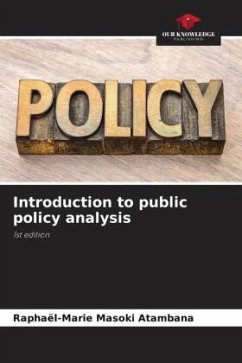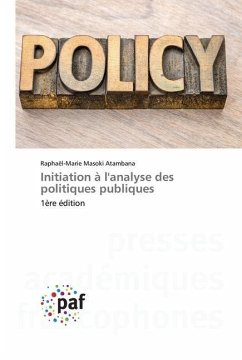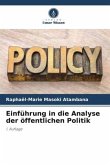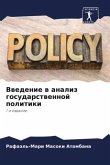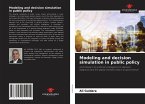The analysis of what the state does on a daily basis, and how it does it, is still an undeveloped field in Africa. The aim of this manual is to provide the general public, and learners in particular, with the keys they need to decipher government policies from all angles. Elected representatives and political decision-makers at all levels, economic operators, leaders of various civil society movements, artists, sportsmen and women, freelancers and religious leaders will all find in this handbook tools likely to contribute to the emergence of more democratic and open societies.Without going back to the Flood, this book offers a historical overview of a young discipline in movement and in search of autonomy, without denying the imperative of a multidisciplinary approach. The toolbox of analytical methods is presented in an indicative manner. How do problems arise? How are the concerns of citizens and players of all kinds placed on the agenda? What is decision-making? What can we learn from the implementation and evaluation of public policy? This manual provides some preliminary answers.
Bitte wählen Sie Ihr Anliegen aus.
Rechnungen
Retourenschein anfordern
Bestellstatus
Storno

